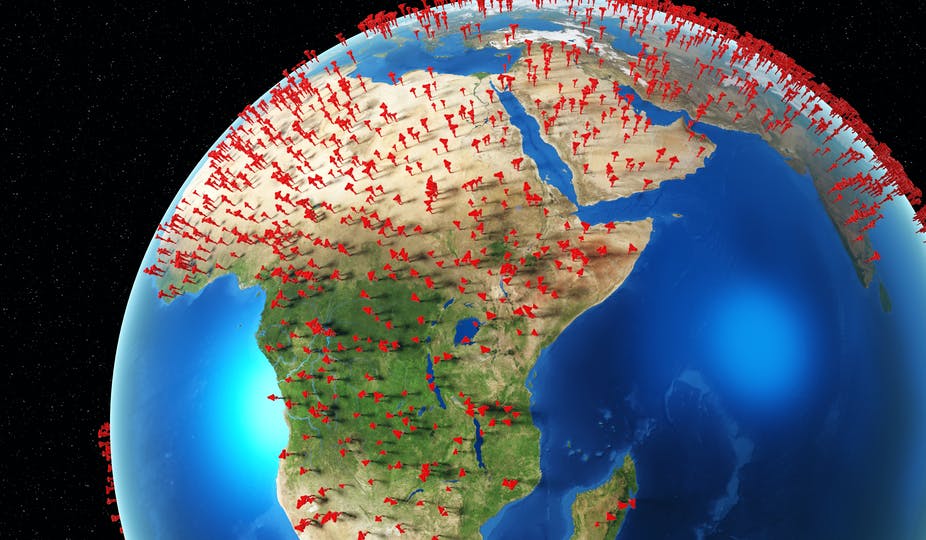Nigerian universities can adopt virtual means to teaching during COVID-19
The video opens to a man on an Instagram live story, who’s obviously annoyed at someone called “Weby the goat”. ‘Weby the goat’, probably engaging in good-natured teasing of his friend had commented: “Fred, your papa”.
The man, who is a lecturer, says that’s why ‘Weby the goat’ calls himself a goat and that it was disrespectful, especially in a ‘class’ like that. It is unclear whether he was joking or not, but the use of the word class gave me pause even as the video made me chuckle as it did the many users who commented under it on Twitter.
It was a screen recording of a lecturer who had utilised the live feature on Instagram to hold a class with his students. It was recorded for the purpose of a possibility of going viral, and it got me thinking about how the lockdown made necessary to prevent the spread of COVID19 affects the academics of students in Nigeria.
COVID19 is the scientific name for a zoonotic strain of the flu virus, according to the World Health Organisation. Known to have originated from a wet market in Wuhan, China, it was first identified in 2019 and has since spread rapidly around the world, prompting WHO to label it a pandemic. The virus is spread when infected droplets of saliva and other bodily fluids come in contact mucosal membranes (mouth, nose, eyes, anus) and as a response, many countries have introduced measures to slow the spread of the disease. These measures include nationwide lockdowns, bans on social and religious gatherings, and the closures of schools, restaurants, sports clubs etc. Nigeria.
On the 28th of February 2020, Nigeria recorded its first case of Coronavirus and by the 30th of March, the number of people who tested positive had increased to over a hundred, causing the federal government to order a 14-day lockdown of Lagos, Abuja and Ogun states. Prior to this, for the safety of their students, many schools had sent them home, to practice social distancing and effectively prevent the spread of the virus.
Many Nigerian students who attend federal universities aren’t strangers to going home during an active school session, due to the constant strikes by the Academic Staff Union of Universities (ASUU). However, this is an entirely different and unfamiliar situation, they have been sent home for their safety. How then, can institutions ensure that the students’ academic year is not put on hold due to the health crisis?
Social media could provide contemporary solutions to these problems. Mass broadcasting options like Instagram Live and Periscope allow students with data and active social media accounts ‘join’ classes and contribute to the class through the comment section. many students already use the Whatsapp group function to share information. I believe it could also be used as a sort of virtual class, where students can confirm attendance, receive instructions for assignments and exercises, submit assignments and papers to their lecturers and get graded. The Instagram live function can also be used by lecturers to demonstrate practical examples. Of course, these would have to be sanctioned and recognised by academic institutions for it to hold any water, or help the students progress in their studies.
Apart from the informality of this idea, there are some other drawbacks that could ensure that it is not very effective in the continuation of the academic year for students in Nigeria. The state of electricity is a major one. Electricity is anything but stable in Nigeria and with most of the population living in poverty, not everyone has access to generators that might help solve that problem, albeit temporarily.
Another difficulty is that even while some do possess smartphones, not all students have access to the internet and those who do, have to make do with the slow internet connection that service providers provide in Nigeria- the fastest is 11.09 Mbps.
Perhaps the most important detail to note is that many students have returned to non-conducive environments that would not allow proper concentration in virtual classes even if there were steady electricity and lightning-fast internet connection. From abusive partners or parents to being caregivers for sick or older relatives, or just living in difficult conditions that would ensure little to no concentration which is required for virtual classes. There is no doubt that the disease and subsequent lockdown to prevent the spread will greatly affect the academic year of many students in Nigeria because while scientists all around the world frantically work to develop a vaccine, it would most likely not be available for global distribution till 2021.
However, according to Professor Olugbemiro Jegede, pioneer vice-chancellor of the Nigerian Open University (NOUN) established in 2002 as an exclusive distance learning institution, specialists like him who work in distance learning have been working on making open distance and electronic learning (ODeL) as mainstream as face to face learning He believes that Nigeria is ready for ODeL and reiterates that some states like Lagos, Kaduna, Ogun, are looking into providing facilities that can ensure that this sort of learning is possible. In the meantime, some institutions in Nigeria already have such facilities in place, for instance, the University of Lagos has the Distance Learning Institute(DLI), so does the Ahamdu Bello University and a school that
It is up to the government and perhaps academic institutions to put in place tools that would aid students to have access to virtual learning, but one thing is sure, Nigeria has to catch up to the rest of the world when it comes to virtual learning and access to progressive curriculums. Time and the end of COVID19 will tell.





